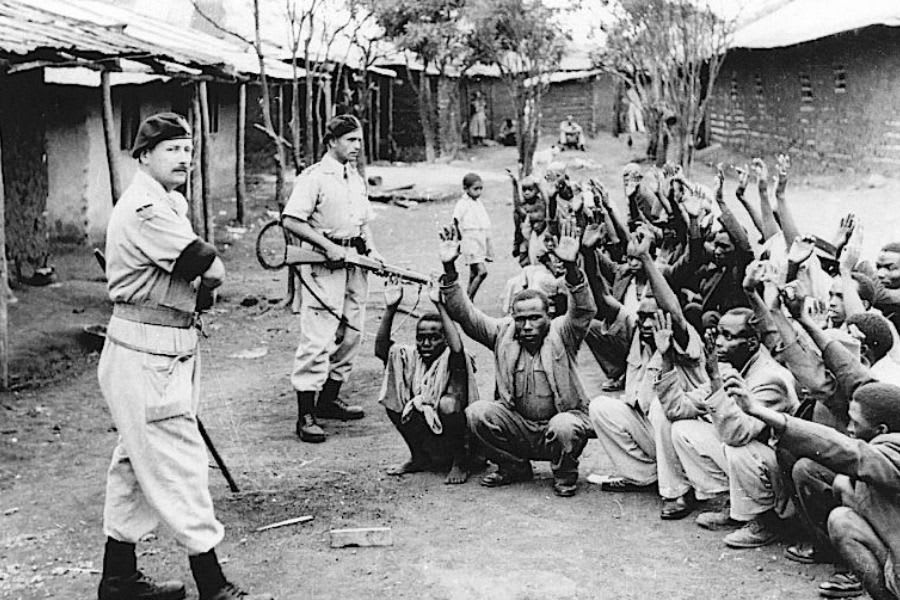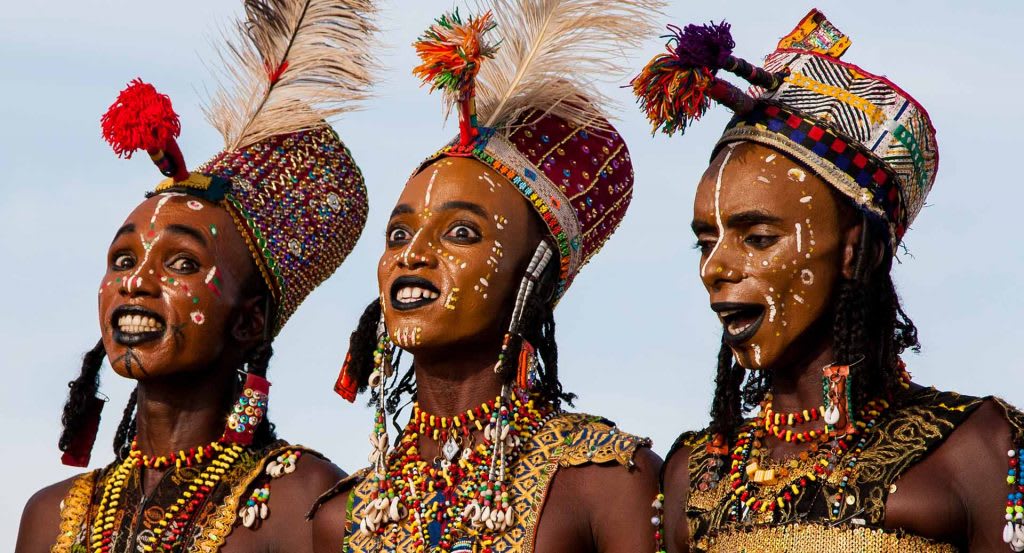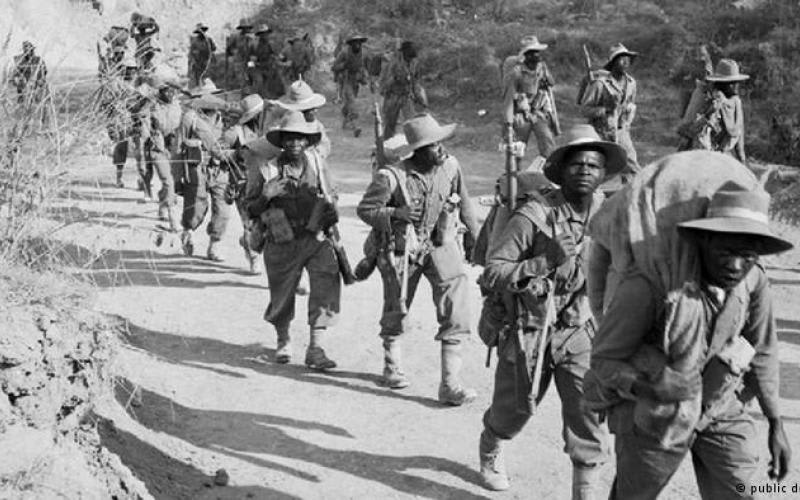Key Points
· Africans have always had rich histories and cultural uniqueness — though not totally perfect — that have shaped and informed our sense of being and identity
· Imperialism and capitalism birthed slavery and colonization, and these destroyed the sense of identity and being of Africans, leaving them with a perennial sense of inferiority complexes reinforced via education and religion
· Africans need to transcend their inferiority complexes, historical as they are, by engaging in a thorough process of decolonization
Introduction
In this age, it goes without saying that African peoples in all parts of the world grapple with embracing their original, holistic sense of identity. The African citizen is continuously barraged with an unending influx of colonial and neocolonial propaganda, being viewed as a sub-human through the Western gaze. The interplay of slavery, colonial conquest, and neocolonial domination has instilled in Africans a mythic, yet thoroughly concrete, sense of a debilitating inferiority complex.
Africans, through centuries of imperial domination, have internalized the image of their oppressor; yearning to become like them while tragically negating their own organic identity.
The invention of a fake social concept called “race”
The imperialist and capitalist subjugation of African people via slavery and colonization was mainly cemented by the racialized notion of racial superiority, whereby Europeans assumed to have a superior, rational, enlightened “civilization” than the rest of other races in the world which they viewed as barbaric, savage, backward, and in need of redemption.
Europeans invented the conception of race to vindicate their greed and quest for power over those that they deemed weak, inferior, and backward. It was this mythical conception of racialized domination — abetted by education, religion, laws, mass media — that the notion of White Supremacy and Black Inferiority were constructed. And this exists to this day.
Such a racial sense of superiority was purely conjured to justify imperial conquests of foreign lands and their peoples, at a time when capitalist profits became their sole existential pursuit. The domination of African peoples was thus achieved through the pernicious instruments of education and religion as gleaned from the European gaze.
Racism and Colonization: The dichotomy of White Supremacy and African Inferiority
In this, sadistic violence to achieve the unquestionable subservience of Africans was inevitable. Mass genocides, resource plunder, rape, torture were enacted on an unprecedented scale as the Scramble for Africa heightened. Atrocities in Namibia and the Congo are irrefutable examples of this.
But as much as brutal violence was needed to quell Africans into submission to serve the interests of the nascent colonial political economies, ideological/hegemonic domination was necessary to maintain the status quo and keep Africans in check.
It was imperative for Africans to denounce their whole being in service of the colonial political economy. Africans had to deny their unique spirituality, values, beliefs, modes of production, social relations, political and judicial systems. In essence, they had to slavishly denounce the totality of their knowledge or epistemological systems which informed their organic cultural consciousness — that is, their sense of identiy and being.
Africans forced to denounce their roots and embrace European “modernity”
By rejecting their culture and history, Africans had to adopt the strangely alienating cultural belief systems of the European colonizers. The cosmological understanding of society that Africans intrinsically possessed was brutally undermined, and was replaced, with violent intrusion, by Europeanized “modernity”.
The import of this being that Europeans (because of diabolic notions of racial superiority) did not view Africans as human beings at all.
To them, the Africans had no history, no sense of identity, and needed to be saved: the entirety of knowledge systems which informed and governed the social, economic, political, and cultural relations of Africans was non-existent to the colonial masters.
They had come with the “finest civilization” that brought “enlightenment” to a “dark” continent of savages — through education, commerce, and Christianity.
The humanity of a “superior” Europe and the “dark” continent with no history and culture
In colonial times, the knowledge systems of Europeans, regarded as superior and infallible intellectualism, totally discredited Indigenous oral traditions and wisdom as illegitimate methods of storing cultural records. These lacked “history” given that Western knowledge systems believe written records are the sole signifier of “prehistory” and “history”.
Without written records, Africans had no history according to racialized domination. Africans came to accept that they had no history and culture since these had been declared illegitimate and devoid of intellectual superiority.
This served colonial interests well. For the colonized to voluntarily submit to this dehumanizing system of oppression and exploitation, they had to be defeated mentally, ideologically, and spiritually. And this obtains right to this day. The Africans viewed Eurocentric education and religion as the only avenues towards material success.
The aim was to strive to become like the rational, elite, valorized white man. But it soon became apparent that no matter how hard Africans attempted to construct their being in the mold of the Europeans, they were never accepted as Europeans. They were still black Africans who were incapable of thinking for themselves and had to perennially hunt for the colonizers’ validation.
As such, Africans could only express their humanity only if it aligned with colonial interests, and if it was approved by the colonial master. In this, the inferiority complex that Africans still wrestle with today was concretely entrenched in the collective psyche of the colonized.
The Africans’ present reality of inferiority complexes
To this day, we are still entrapped in this quagmire — we constantly seek the European gaze to be regarded as human. In this tragic material reality, we still look down on our own histories and knowledge systems as irrelevant to our contemporary existential malaise. We have become our own enemies because colonial domination “othered” us, while everything that came from the West was glorified and deemed infallible.
Education and religion — together with mass media, laws, capitalist political and economic systems, gender, class, sexuality, and political orientation — have done more harm to Africa than can be imagined. While colonialism was more brute and direct, the contemporary age of globalized neocolonialism comes with immeasurable subtlety and complexities. Eurocentric education remains dominant in Africa as it was in colonial times.
This means that it is incredibly onerous for the continent to develop narratives and discourses that challenge these knowledge hierarchies as dictated from the Western gaze. Education as it stands serves to produce a passive citizenry that conforms to a Eurocentric world order in which Africa’s knowledge systems are continuously killed, while the plunder and theft of natural resources persists unabated.
The invention of race by Europeans justified the imposition of their one-sided view of “modernity” — predicated on the warped logic of lies, manipulation, plunder, fraud, repression and exploitation.
Religion plays a huge role in sustaining this order, presenting such reality as unchangeable. Yet the strands of Christian religiosity brought by imperialists has nothing to do with transformative and re-distributive justice. Religion was employed to obtain the acquiescence of Africans as regards the latter’s domination.
This persists to this day and serves to reify harmful stereotypes and negative images that Africans have unwittingly internalized via the unequal power dynamics at play in this age.
Africa is still portrayed globally as the hotbed of failed states, the backwaters of all poverty and regression; forever ensnared into a maelstrom of underdevelopment. These narratives give neocolonial masters the impetus to continue interfering in the sovereignty of African peoples.
The need for all African peoples to conquer inferiority complexes and return to their roots
Against this backdrop, it is indispensable that Africans develop counter-hegemonic discourses/narratives and practical action rooted in the altruistic, radical, and organic need to usher in a revolutionary consciousness of decolonization. Africans need to realize that their own sense of identity is not inferior simply because of some invention called “race”.
There is thus the need to fight neocolonial domination and its stranglehold over knowledge production systems that still render Africans as sub-humans in need of saving.
Africans need to realize the power of their being; the totality of their cultural history: that inferiority complexes keep us shackled to capitalist modern-day slavery; and that the more we reclaim our Indigenous oral traditions and wisdoms, our spirituality, and our sense of humanistic communitarianism, the more we will edge closer to the fruition of our decolonization. And holistic independence. This is a protracted struggle but one that is inevitable and truly worth it.









